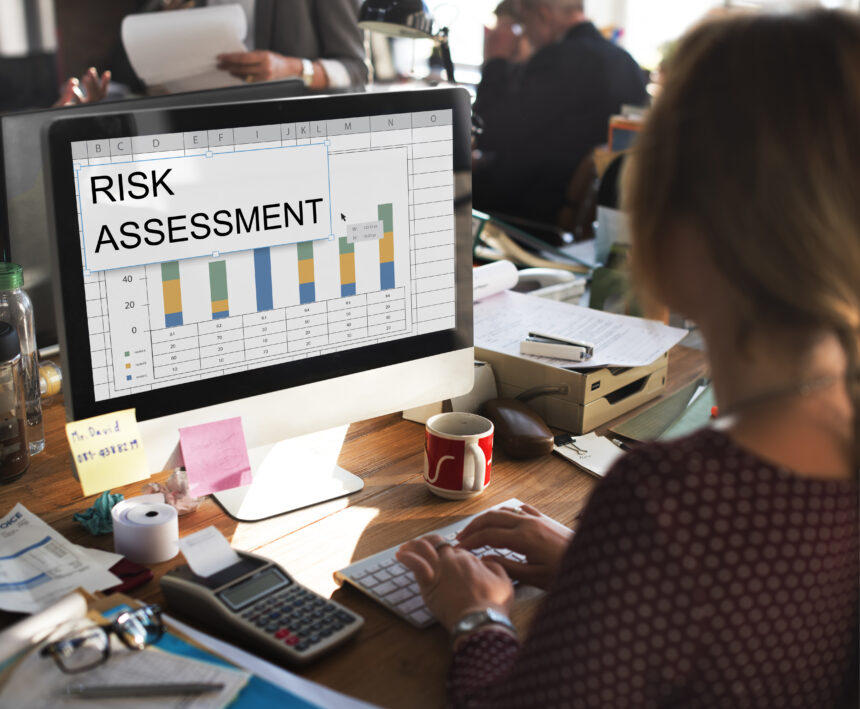Property investment has long been a popular avenue for individuals seeking to grow their wealth and secure their financial future. However, like any investment, it comes with its fair share of risks. In order to make informed decisions and mitigate potential pitfalls, it is crucial for investors to conduct a thorough risk assessment before diving into the world of property investment. This article aims to shed light on some of the common risks associated with property investment and provide insights into how investors can analyse and manage those risks effectively.
- Market Volatility: Property markets are subject to fluctuations influenced by various factors such as economic conditions, interest rates, and government policies. A sudden downturn in the market can lead to a decrease in property values, making it challenging to sell or rent out the property for desired returns. To mitigate this risk, investors should study historical market trends, consult with industry experts, and diversify their property portfolio across different locations and property types.
- Financing Risks: Property investment often involves significant financial commitments. Investors who rely heavily on borrowed funds face the risk of interest rate hikes or difficulty in securing financing. Additionally, changes in lending criteria or stricter regulations can limit access to credit. To minimise financing risks, investors should maintain a healthy credit score, have a contingency fund to cover unexpected expenses, and explore different financing options to ensure flexibility.
- Vacancy and Rental Risks: One of the primary goals of property investment is generating rental income. However, vacancies and rental arrears pose significant risks to investors’ cash flow. Investors should carefully assess the demand and supply dynamics of the rental market in their target area, conduct thorough tenant screening, and set realistic rental rates to minimise vacancy risks. It is also advisable to have a buffer in the budget to cover potential periods of vacancy.
- Property Management Risks: Effective property management is crucial for maximising returns and maintaining property value. However, entrusting the property to inexperienced or unreliable property managers can result in poor tenant selection, inadequate maintenance, or legal issues. Investors should thoroughly research and engage competent property management companies or consider managing the property themselves if they possess the necessary skills and knowledge.
- Regulatory and Legal Risks: Property investment is subject to numerous laws, regulations, and compliance requirements. Changes in tax laws, zoning regulations, or tenancy laws can significantly impact an investor’s profitability and legal standing. It is essential for investors to stay updated on relevant legislation, consult with legal professionals, and ensure compliance to avoid legal disputes and financial penalties.
- Maintenance and Repair Risks: Properties require ongoing maintenance and occasional repairs, which can eat into an investor’s profits if not adequately planned for. Investors should conduct regular property inspections, set aside a portion of rental income for maintenance, and consider purchasing insurance to cover unforeseen damages or liabilities.
- Economic and Geopolitical Risks: Broader economic factors such as recessions, political instability, or natural disasters can impact property investments. Investors should consider economic indicators, assess the geopolitical climate, and diversify their investment portfolio across different asset classes to mitigate the impact of these risks.
- Liquidity Risks: Real estate is generally considered a long-term investment, and converting property assets into cash quickly can be challenging. Unexpected financial needs or changing investment strategies may require liquidity. Investors should carefully evaluate their financial goals, consider the investment time-frame, and have contingency plans to address any urgent liquidity requirements.
In conclusion, property investment offers lucrative opportunities for wealth creation but is not without its risks. Conducting a comprehensive risk assessment is crucial for investors to identify potential pitfalls and develop strategies to manage and mitigate those risks. By staying informed, diversifying their portfolio, and seeking professional advice when needed, investors can navigate the property investment landscape with greater confidence and increase their chances of achieving long-term success.










